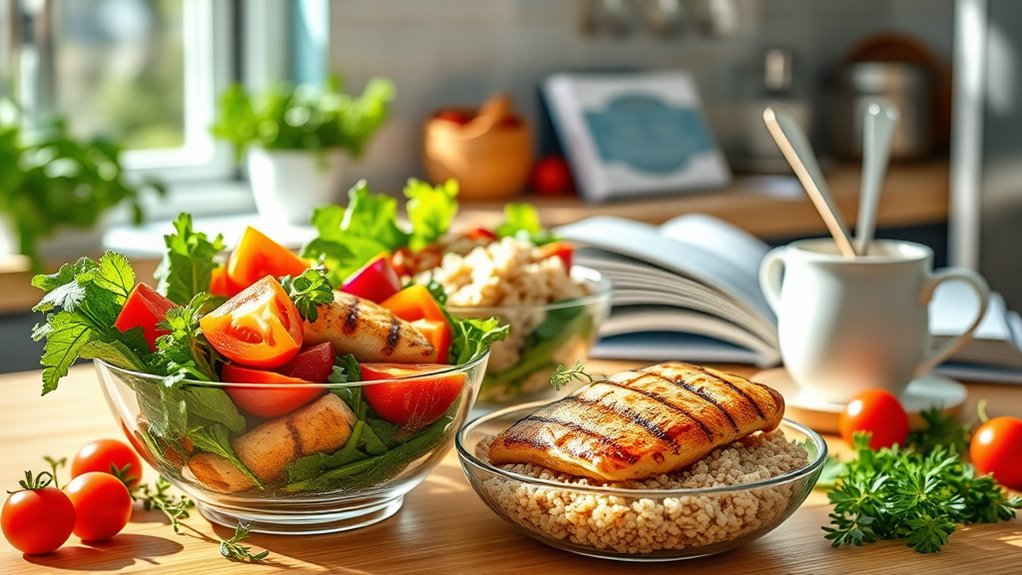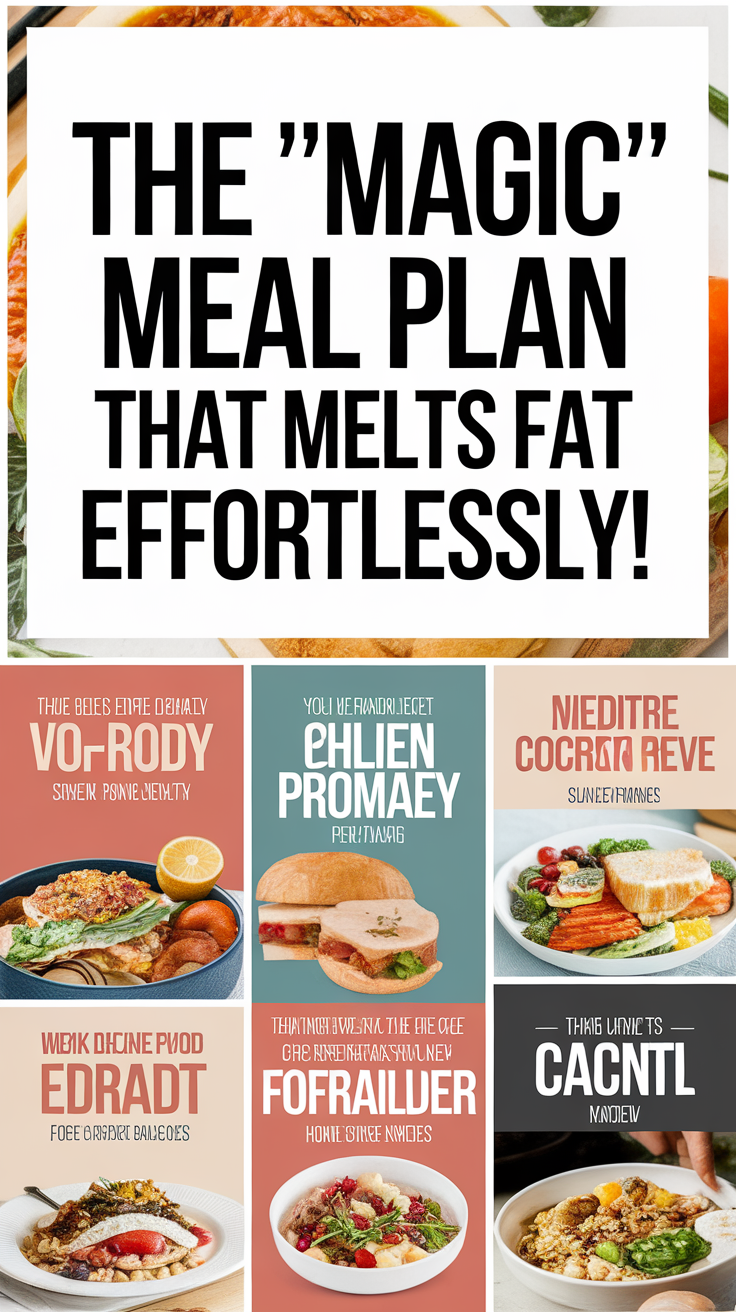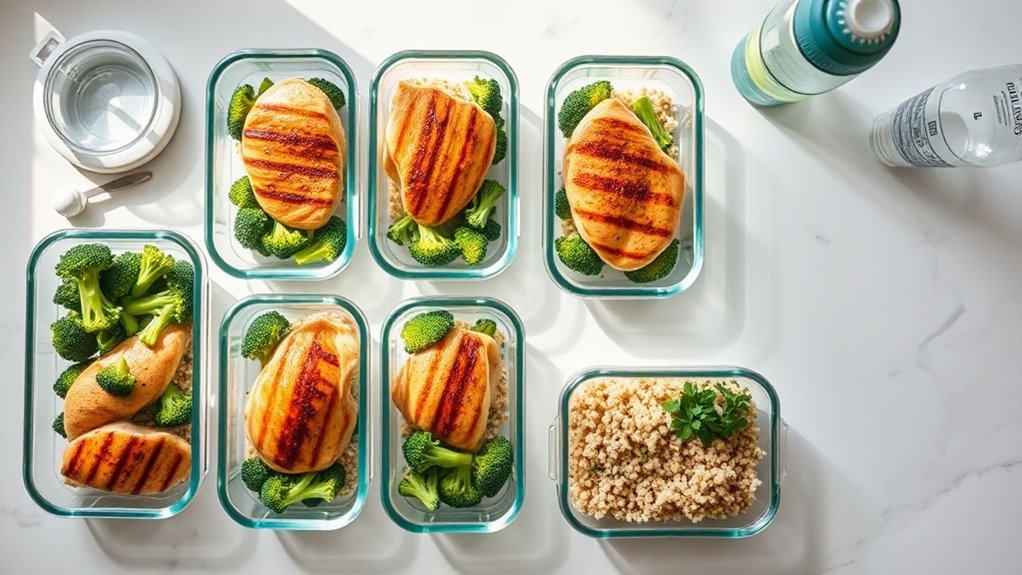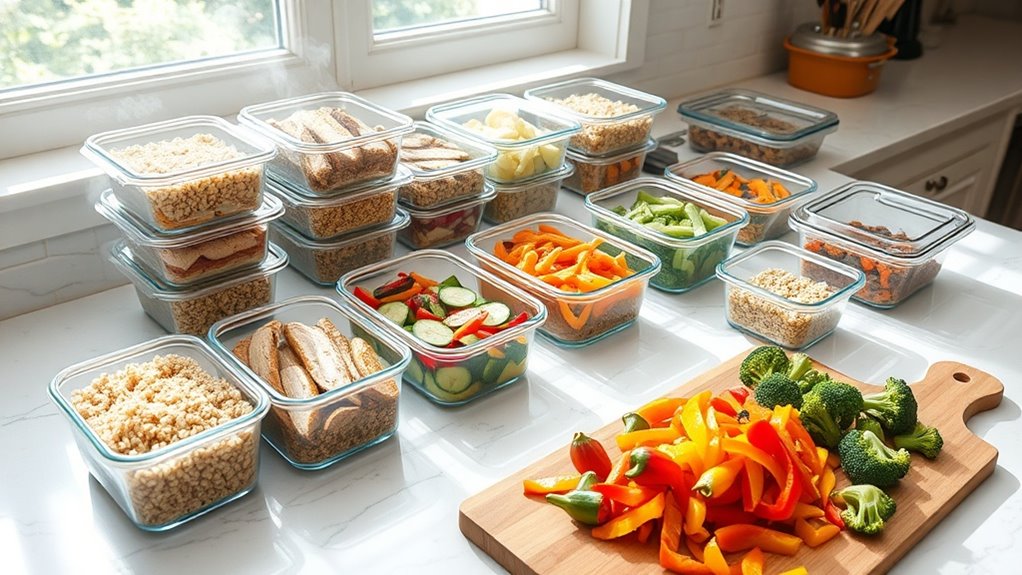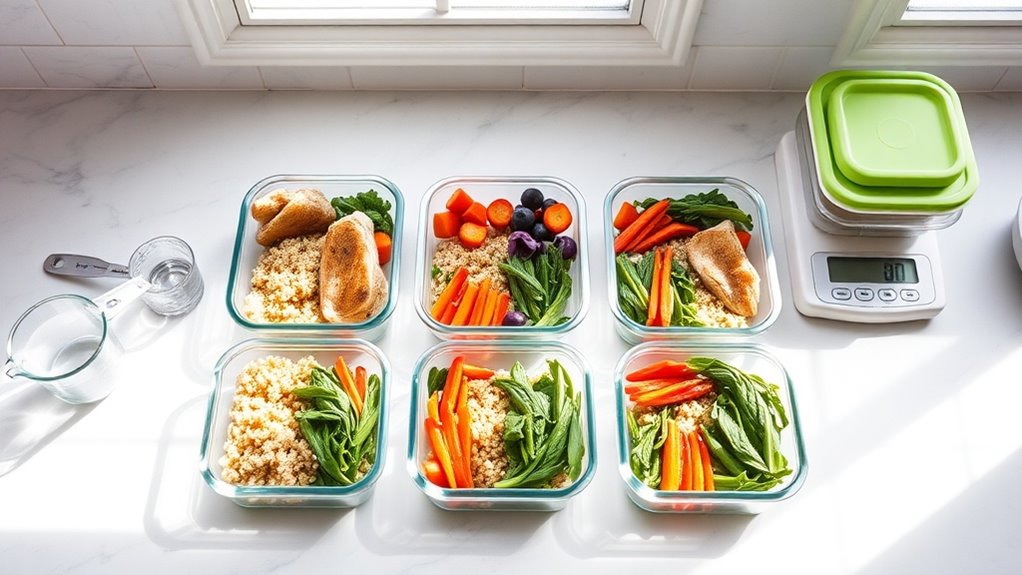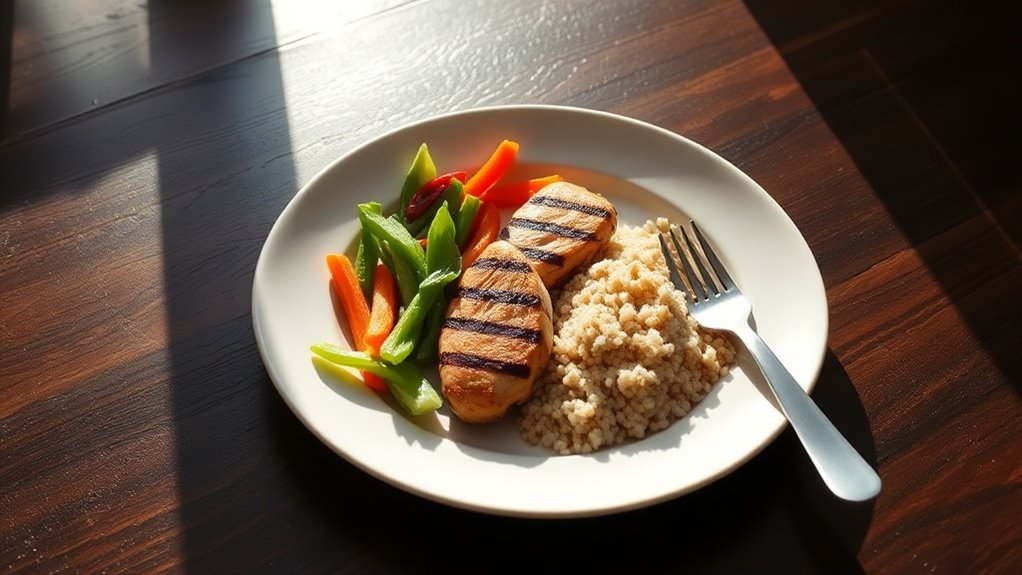The ‘Magic’ Meal Plan That Melts Fat Effortlessly!
The ‘magic’ meal plan that effortlessly melts fat focuses on balancing macronutrients and choosing nutrient-dense foods. By creating a calorie deficit and managing portion sizes, you’re setting yourself up for success. Incorporating healthy fats and lean proteins helps with satiety and energy, while seasonal fruits and vegetables boost your nutrition. It’s all about mindful eating and making sustainable choices. Stick around, and you’ll discover even more strategies to enhance your weight loss journey.
Understanding the Science of Fat Loss
Understanding the science of fat loss is crucial if you want to achieve your goals effectively.
Fat loss occurs when you burn more calories than you consume, creating a calorie deficit. This process involves hormonal and metabolic changes that shift your body’s energy utilization.
Understanding macronutrients—proteins, fats, and carbohydrates—will empower you to make informed choices. You’ve got to recognize that not all calories are created equal; nutrient-dense foods support fat loss better than empty calories.
Additionally, the role of insulin is vital; it regulates fat storage and energy use.
Key Components of an Effective Meal Plan
Creating an effective meal plan is essential for reaching your fat loss goals, as it directly influences your calorie intake and nutrient balance. To achieve success, focus on these key components:
| Component | Importance |
|---|---|
| Macronutrients | Ensure balanced protein, fats, carbs |
| Portion Control | Manage your serving sizes |
| Meal Timing | Optimize when you eat for energy |
| Hydration | Support metabolism and satiety |
Incorporating these elements helps you craft a personalized approach, making it easier to adhere to your plan. By mastering portion sizes and understanding macronutrient ratios, you empower yourself to make informed choices. Remember, consistency is vital; each meal is a stepping stone towards your ultimate fat loss success.
Debunking Diet Myths: What Really Works
Have you ever wondered why some diet trends seem to work for others but not for you? The truth is, many popular diets are built on myths.
For instance, cutting carbs entirely isn’t the secret to weight loss; balance is key. You might’ve heard that eating fat makes you fat, but healthy fats are essential for satiety and hormone regulation.
Also, the notion that you must eat small meals every few hours is outdated. It’s about total caloric intake, not frequency.
Remember, sustainable weight loss comes from understanding your body’s needs, not following fads. Focus on whole foods, adequate protein, and mindful eating.
Dismantling these myths will empower you to make informed choices that truly support your fat loss journey.
Practical Tips for Sustainable Eating Habits
While it might seem overwhelming to change your eating habits, adopting sustainable practices can be easier than you think. Start by focusing on whole, nutrient-dense foods. Embrace seasonal fruits and vegetables; they’re not only fresher but also cheaper.
Plan your meals ahead of time to avoid impulsive choices, and keep a well-stocked pantry with healthy staples. Try batch cooking to save time and ensure you always have nutritious options available.
Mindful eating can make a significant difference—listen to your body’s hunger cues and savor each bite. Finally, stay hydrated; sometimes thirst masquerades as hunger.
Building Your Personalized Meal Plan
When you take the time to build a personalized meal plan, you’ll set the foundation for successful fat loss.
Start by assessing your goals—determine how much weight you want to lose and the timeframe you’re aiming for.
Next, analyze your current eating habits; track what you eat to identify patterns and areas for improvement.
Choose nutrient-dense foods that you genuinely enjoy to ensure sustainability.
Balance your macronutrients: prioritize lean proteins, healthy fats, and complex carbohydrates.
Don’t forget to incorporate a variety of fruits and vegetables for essential vitamins and minerals.
Lastly, stay flexible—allow for adjustments as you progress.
This personalized approach not only accelerates fat loss but also empowers you to master your relationship with food.
Frequently Asked Questions
Can I Drink Alcohol While Following This Meal Plan?
You can drink alcohol, but moderation is key. Alcohol can hinder your progress and add empty calories. Focus on your goals, and consider healthier options to stay aligned with your meal plan for optimal results.
How Quickly Can I Expect to See Results?
You can expect to see results within a few weeks, depending on your commitment and consistency. Stay focused on your goals, and you’ll notice positive changes in your body and energy levels soon.
Are There Any Supplements Needed for This Meal Plan?
You don’t need any supplements for this meal plan; focusing on whole foods and balanced nutrition is key. However, if you’re struggling, consider consulting a nutritionist to tailor your approach for optimal results.
What if I Have Food Allergies or Intolerances?
If you have food allergies or intolerances, you’ll need to customize your meal plan. Focus on safe, nutritious alternatives that fit your needs, ensuring you still gain the benefits without compromising your health.
Is This Meal Plan Suitable for Vegetarians or Vegans?
If you’re a vegetarian or vegan, you can adapt the meal plan to suit your preferences. Just substitute animal products with plant-based alternatives, ensuring you maintain balanced nutrition while enjoying delicious, satisfying meals tailored to you.

